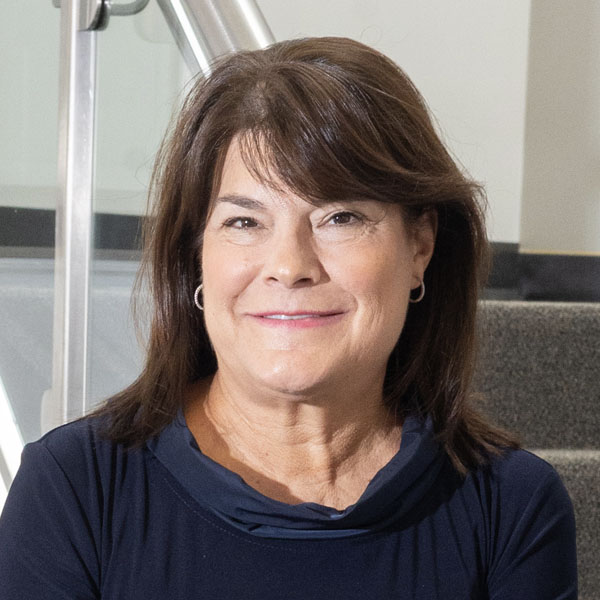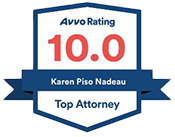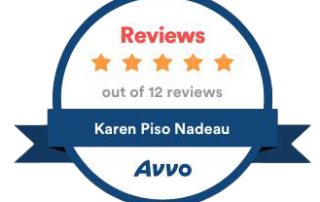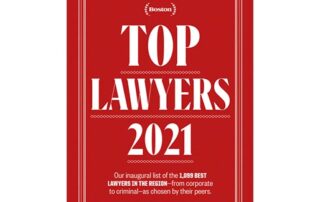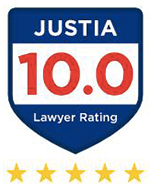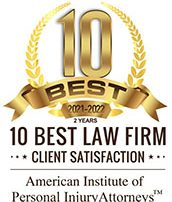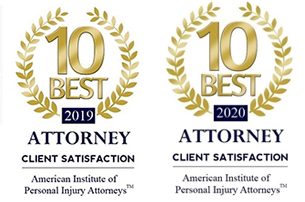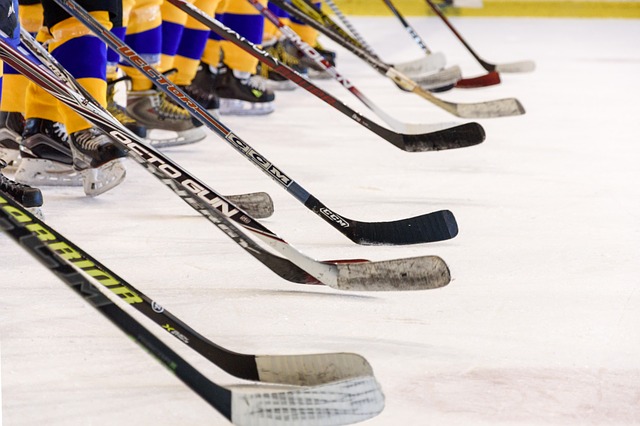
By: Karen Piso Nadeau
Massachusetts Judge Rules Mother May Pursue her Personal Injury Claim Against the Commercial Sports Venue
A Marlborough, Massachusetts Hockey Rink Attempts to Shield Itself from Liability to a Mother Seriously Injured by a Puck to her Head while Watching her Son Play at a Youth Hockey Tournament
The mother in the recently decided case of Sally Lauenzi vs. New England Sports Management Corporation, Middlesex Superior Court Civil Action No. 18-1648-B, did what so many other hockey parents do. She traveled with her son’s hockey team so her son could play in an out of state tournament. The Marlborough, Massachusetts complex is a popular facility frequently used by hockey teams from youth hockey to college hockey.
My own experience started at the Marlborough rinks more than a decade ago chasing my son’s passion playing youth hockey and just this past year I continued the chase to watch my son play club hockey for Boston College at the Marlborough venue. Many of our friends and family share the same love for hockey and have spent a lot of time at the Marlborough complex. I have memories of my daughter, a very active toddler back in the day, doing cartwheels, playing and dancing with the other hockey players’ siblings in some of the rooms off of the spectator rinks. I think my son was playing with the Red Rangers where we had some great times with great people.
We enjoyed another four years of hockey with my son wearing the St. John’s Prep Danvers sweater where we continued our trips to the Marlborough complex establishing close friendships with fellow hockey parents and memories that we will never forget. There were always multiple trips to the concession stands for drinks and snacks like hot cocoa, candy, pizza and salted pretzels. Hockey parents spend hours if not days and weeks of their lives at this Marlborough complex bringing their entire families and multiple generations with them. Who knew that the facility would claim immunity if someone was hurt on their property?
A Massachusetts Superior Court judge recently decided on June 1, 2020, that New England Sports Center (NESC) was not shielded from liability and allowed a mother’s negligence claim to proceed in court. NESC attempted to argue that the mother had no personal injury claim because the Recreational Use Statute shielded a property owner like NESC from any liability. Judge Wilkins disagreed.
Under the Massachusetts Recreational Use Statute, M.G.L. chapter 21, section 17C, a property owner is immune from liability to users if the property owner opens its property for recreational purposes without charging a fee. New England Sports Management Corp. (NESM) owns the New England Sports Center (NESC) located at 121 Donald Lynch Boulevard, Marlborough, MA. NESC makes the rinks available to the public for recreational purposes. On June 5, 2016, a mother visited NESC to watch her son play an ice hockey game and to “supervise” her son’s conduct. The mother sits in the spectator area of Rink 4, and a hockey puck hit the mother during the game resulting in a serious injury to her head. The mother did not pay for a ticket to the game. She did pay for her son to play on the Jersey Wolves who paid a tournament fee directly to the Marlborough venue for use of its facilities.
The Court noted that there was a similar case that occurred in 2015, about one year prior to this incident, when a hockey puck flew out of NESC Rink 1 into the elevated spectator area not protected by netting and struck a spectator in the head causing a bleeding injury.
Although NESC claimed it periodically inspected the property for dangerous conditions, NESC had no safety protocol to prevent injuries to spectators and did not invest in education of its employees on spectator safety issues according to the court’s decision.
The judge noted that NESC generates millions of dollars of revenue each year renting ice to teams, organizing and hosting tournaments attracting visitors to the Marlborough sports center. NESC rented 16,000 to 20,000 hours of ice time annually and the peak season rate was $326 per hour. NESC actively recruited tournaments and received commissions for referring visitors to local hotels. NESC also derived revenues from expenditures on food and alcohol at its restaurants and items sold in retail shops, a game room and multiple vending machines.
The Massachusetts Recreational Use Statute provides in relevant part that any person having an interest in land who permits the public to use it for recreational purposes without imposing a charge or fee shall not be liable for personal injuries or property damage suffered by a member of the public including a minor in the absence of willful, wanton or reckless conduct. The court confirmed that the mother can’t avoid the effect of the statute by arguing she paid for her son to participate in the tournament at NESC. The court stated that the mother engaged in a recreational pursuit watching her son play hockey at the rink. Additionally, the court found that she also supervised her son.
The issue the court addressed is:
In the absence of an event ticket for spectators, does the Recreational Use Statute preclude recovery by an injured spectator who was also present to supervise her son?
The court found that the mother was there for a dual purpose. She paid her son’s tournament fee. She attended the hockey game as a spectator and also attended the tournament to supervise him. The court stated that a coach’s supervision may suffice in many instances but is not the same as parental supervision particularly in this case in these circumstances. The court made it clear that invocation of the term “supervise” is not enough to get around the Recreational Use Statute. In this case, the mother detailed her son’s specific needs. For example, during football season, her son was not allowed to attend games without his father present. The supervision was well beyond what a team coach would provide- the court found. The judge also noted that supervision is important in a multi-state tournament. Here, the mother and her son traveled from New Jersey to play in the tournament at the Marlborough rink.
In this case, the mother made a very specific factual showing that met the definition of “supervision” needed allowing the court to find she was present not only to watch her son play hockey but also for needed supervision. The rink tried using the statute to avoid any liability. The rink argued that since the mother was using the rink for recreational purposes and did not pay an admission fee to get in, the Recreational Use Statute barred any recovery. The court refused NESC’s argument that the mother was a mere spectator who was barred from recovery and denied NESC’s request that the sports venue benefit from the protection of the statute and insulate the sports venue and the rink from any liability. NESC’s request that the court dismiss the mother’s case was denied, allowing the mother to continue her case in court. The court left it for the jury to decide to what extent NESC is responsible for the mother’s harm and how much the mother’s damages is worth.
The court detailed the for-profit nature of NESC’s private business generating millions of dollars in revenue every year. NESC did not just open its facility for free to the public. The law insulating a property owner from liability seeks to protect those businesses allowing visitors to enjoy their property for free. This is far from NESC’s for-profit business and was not what the legislature had in mind to encourage immunity from suit. NESC’s business plan included charging tournament fees and encouraging foot travel at its venue whereby a visitor did not have to pay for a ticket to enter its sports facility. NESC made a lot of money from the concession stands, game room and restaurants on its property. The court refused to extend the protection of immunity for a business like NESC generating millions of dollars in revenue despite not charging an admission fee.
NESC voluntarily chose this fee structure whereby a spectator, like the mother in this case who was injured by the flying puck, did not pay for a ticket for admission. The Marlborough business could not avoid liability by choosing to not charge an admission fee and setting up a fee structure for profit on other income generating things not considered a fee for admission.
The court left open how the Recreational Use Statute will be further interpreted and used the dual purposes of the mother at the rink that day- 1) as a spectator watching her son play a hockey game and 2) to supervise him for specific reasons- to shut down NESC’s attempts to avoid liability where NESC may have failed to adequately protect visitors watching a game at the rink from a flying puck. In summary, there is nothing in the statute suggesting a multi-million dollar for profit business of such fee structure serves the purpose of the statute which is to allow visitors on the property free of charge for recreational purposes.
Property owners, like this Marlborough, Massachusetts sports venue renting ice time on multiple rinks at its property, need to be aware that they may be held responsible for harm caused on their property if they receive money and make a profit and can’t escape liability by deciding to call it something other than an admission fee. The law in Massachusetts requires a landowner to take reasonable steps to protect others from unsafe conditions and dangers on their property.
This mom was simply watching her son play hockey when a flying puck struck her in the head. We do not know the details based on the court decision. We don’t know how or why the puck flew out of the rink into the spectator stands. The court notes a similar incident a year previously in a different rink at the Marlborough facility where there was no netting to prevent the flying pucks from entering the stands. The mother will have to prove her case against NESC by showing NESC breached its duty of care. This is typically accomplished by establishing that the owner of the premises did something or failed to do something that created an unsafe environment and dangerous conditions to visitors. The mother will need to show that the Marlborough facility knew or should have known that there was a foreseeable risk of harm and failed to take the necessary reasonable steps to prevent harm to its visitors.
The mother filed a lawsuit against NESC in Middlesex Superior Court claiming the Marlborough sports center was negligent. NESC sought a summary judgment and requested dismissal of the mother’s case. The judge admitted the mother as a spectator who did not purchase a ticket could not avoid the Recreational Use Statute by simply arguing she paid the tournament fee for her son to participate. The judge found in favor of the mother by deciding that she was not only at the rink to watch her son play but also to supervise him. The judge found that the mother showed her son had specific supervision needs.
The case suggests that the reason the mother won the hearing and NESC lost is based on her reasons for having to supervise her son. There are questions that remain as to what type of proof is needed to show the specific supervision required to allow a personal injury case to proceed like this. Some kids need their skates tied by only their parents. Some kids have medical conditions. Some kids have been injured and are returning to hockey still not one hundred percent. Some kids will not get on the ice without a parent present. What type of supervision meets the court’s standard to not only be a spectator remains to be seen.
The case also suggests that the court was not prepared to reward NESC for its conduct in deciding to not charge an admission fee thereby increasing the foot travel to spend money at the retail shop and concession stands and vending machines and restaurants. The court suggests it would be unfair to give NESC the benefit of immunity from liability when it makes millions of dollars in how it operates it Marlborough complex. Ultimately, the court refused to insulate NESC from liability when NESC’s for profit business plan was not the type of landowner the legislature meant to protect with the statute.
This case will likely be used in other types of sports and facilities and will not be limited to hockey and ice rinks. The decision allowing the mother the ability to move forward with her personal injury case seems like the right decision here. NESC should not be allowed to use the statute meant for free admission for recreational use when it chose a business scheme that increases its profit. Insulating a complex like this gives them no incentive to provide a safe environment for not only the hockey players participating in the tournament but also their parents, brothers, sisters, other family members, and friends visiting the Marlborough complex and spending their time and money at the venue.
As a victim of an accident, make sure everything is done to protect your interests. The lawyers at Nadeau Harkavy LLC help people and their families recover compensation for their losses in serious injury and wrongful death cases arising from accidents at the hands of someone else’s wrongdoing. We help you navigate the rules and insurance claims process, and we are dedicated to get you the compensation you deserve. If you have any questions about your legal rights relating to an accident, feel free to contact us for a free no obligation consultation today at 617-674-7640.
Meet The Lawyers
With 60 years of combined experience serving injured victims in Massachusetts, our team has collaborated for nearly two decades, delivering a proven track record of outstanding results for clients. Guided by a philosophy of treating clients as we would our own family, we strive to ease our clients' journey from the initial phone call to case resolution. Committed to competing and fighting vigorously, we aim to hold insurance companies accountable to the fullest extent of the law. Our belief in close communication ensures the best possible outcomes, and our approachability makes us readily available to you. Entrust us with your case, allowing you to focus on your physical, emotional, and financial recovery.
Massachusetts Personal Injury Lawyers
Massachusetts Personal Injury Lawyers with over 60 Years Combined Experience Representing Those Injured in Accidents.


